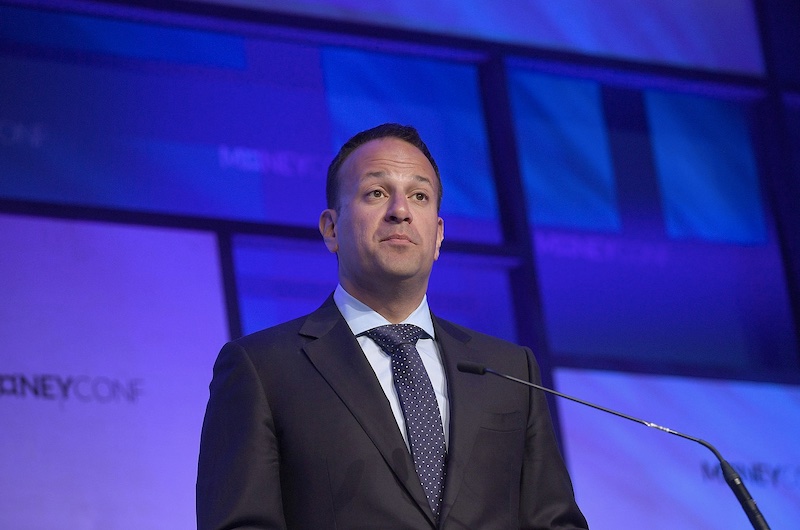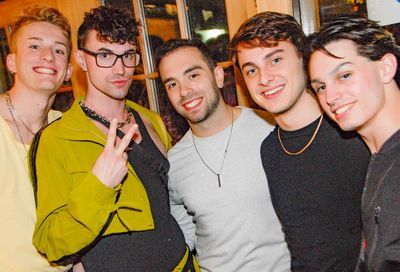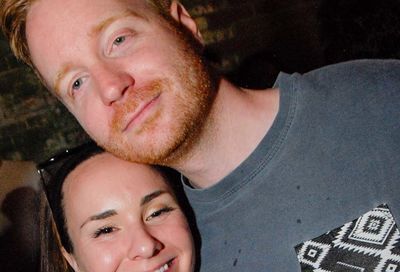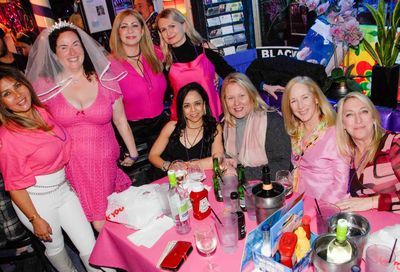Building Bridges
Capital Pride forum tackles challenges, successes for the GLBT community
”Building a bridge to a brighter future” was the theme as a panel of Washington-area GLBT leaders took the stage at Studio Theatre to discuss the ever-changing path of the gay and lesbian community.
The town-hall meeting on Monday, June 4, was part of the week-long Capital Pride events. More than 60 people filled the seats of the 14th Street NW theater.
Capital Pride Director David Mallory welcomed the crowd, pointing out that the theme of the evening ”complements and reflects” this year’s Pride theme, ”Together we can, together we will.”
”[It] is really about overcoming those barriers and differences which sometimes separate us, and finding ways in which we can effect change in our movement for true social justice and equality,” he said.
The moderator for the panel was Jason Bellini, a correspondent for CBS news on the gay cable network LOGO.
Panelists included Ward 1 Councilmember Jim Graham; Tom Field, a member of the Board of Directors of Equality Virginia; Delegate Adam Ebbin from Virginia’s 49th district, representing Alexandria, Arlington and Fairfax; Delegate Heather R. Mizeur from Maryland’s 20th district, representing Montgomery County; Metro D.C. PFLAG President Alan Keiswetter; and Councilmember David A. Catania (At-Large), who later joined the panel. Earline Budd of Transgender Health Empowerment, and the Rev. Currie Burris, of the Interfaith Fairness Coalition of Maryland, were scheduled to appear on the panel, but were not present.
The discussion included a wide range of topics, including the difficulties many HIV positive people face in obtaining affordable medications.
”One of the biggest barriers to having access to affordable medications for those with HIV and AIDS is the Medicaid program,” Del. Mizeur said. ”You can’t qualify for coverage until you have full-blown AIDS…. We’re working, on a federal level, to try to change it, so that you can be eligible based on your HIV status,” she added, noting efforts to break down this barrier on a federal level, including the Early Treatment for HIV Act (ETHA) bill.
Field addressed the topic of LGBT youth and the challenges that they face.
”A startling percentage of the young people who are homeless on the streets of our major cities today, are kids who have been thrown out by their parents, disowned by their parents and pushed out of their homes,” Field said, stressing the need to publicize that fact and develop non-government-based responses, including churches.
Mizeur later answered an audience member’s questions about the lack of collaboration between churches and the GLBT community, pointing out that GLBT people often don’t stay within faith organizations because they feel driven out.
”We’ve grown over time to be very comfortable talking about being out as gay, lesbian, bisexual and transgender individuals, but somehow there’s still this uncomfortability as coming out as a devout Catholic,” Mizeur said, adding that she attends mass with her wife every Sunday. Churches can changes, she said, when GLBT people of faith make their voices heard.
Del. Ebbin discussed the opposition that gay-straight alliances face in Virginia, including that from religious organizations.
”We’ve fought it off, successfully, for the past three years, but there is more work to be done,” he said. ”Our opponents are becoming a little more clever.”
In particular, those groups have made repeated efforts to ban gay-straight alliances, changing tactics with each try.
Ebbin said he’s also witnessed an ”amazing amount of ignorance,” when dealing with the topic.
”I actually heard from a parent out in Staunton, Virginia, saying that she thought that if these clubs exists, then her daughter would succumb to peer pressure and join and become a lesbian because of these clubs.”
The panelists also took questions from the audience, including one related to the high percentage of HIV and AIDS among African-American men.
”It’s more than simply the African-American male population that has alarming statistics,” said Catania. ”It also includes our transgender community to a very large degree here and the numbers for the transgender community are even higher than for gay black men.”
Catania said the city needs to look ”comprehensively” at the problem, including current efforts to better track and implement HIV/AIDS prevention money and efforts in the District.
”You to a very solid foundation of research, you have to have your prevention dollars follow it, and then you’ve got to make sure you have the resources to treat individuals who have become positive,” he said.
The forum concluded with a few words of advice from Graham, who noted that in his work and meetings in Ward 1, he’s often the first openly gay person many people have dealt with ”on this type of level.” That’s ”a heck of a distance to come,” he said.
”All of us can make that statement by being who we are in all of aspects of our lives, and saying to people, ‘Evaluate us on who we are, not what group we’re a member of,”’ he said. ”Look at me and take me on my own merits.”
Support Metro Weekly’s Journalism
These are challenging times for news organizations. And yet it’s crucial we stay active and provide vital resources and information to both our local readers and the world. So won’t you please take a moment and consider supporting Metro Weekly with a membership? For as little as $5 a month, you can help ensure Metro Weekly magazine and MetroWeekly.com remain free, viable resources as we provide the best, most diverse, culturally-resonant LGBTQ coverage in both the D.C. region and around the world. Memberships come with exclusive perks and discounts, your own personal digital delivery of each week’s magazine (and an archive), access to our Member's Lounge when it launches this fall, and exclusive members-only items like Metro Weekly Membership Mugs and Tote Bags! Check out all our membership levels here and please join us today!





















